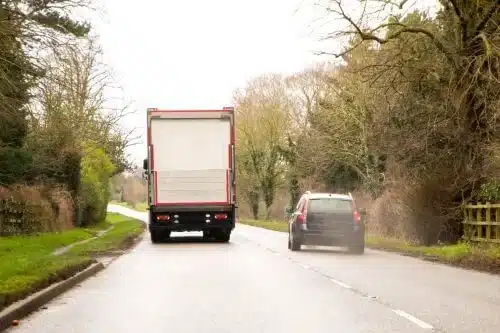
Whether or not you were speeding, it’s important to take steps to protect your legal rights after a car accident, and the first thing you should do is seek legal advice. Attorney Ali Awad is an experienced litigator representing clients hurt in car accidents or other personal injury situations. He started the CEO Lawyer Personal Injury Law Firm just a few years ago, and it quickly expanded to be the fastest-growing law firm in the country, besting 499 other firms. Mr. Awad makes legal knowledge accessible to everyone with his informative and engaging social media posts for more than a million followers. When you’ve been injured in a car crash, the CEO Lawyer Personal Injury Law Firm is always available for a free consultation to learn your options.
What is Modified Comparative Negligence? and How Does It Affect Claims for Car Accidents Due to Speeding?
Georgia is a modified comparative negligence state with regard to car accidents and other personal injury claims. Modified comparative negligence is a system that recognizes not every accident is 100 percent the fault of a single party. Sometimes both drivers made mistakes that contributed to the wreck, so in a court case, the judge or jury will be tasked with assigning responsibility to both parties. For example, one person might be 30 percent at fault, while the other is 70 percent at fault. A driver who is less than 50 percent responsible for the crash can seek damages from the other driver, but their award will be reduced by their percentage of fault. The driver who is more than 50 percent responsible cannot collect damages from the other party.
If you were speeding or disobeying another traffic law at the time of your accident, you would likely be assigned some percentage of blame higher than 0. However, that does not necessarily mean you were mostly at fault. For example, maybe you were going ten miles over the speed limit. You broke the law, and that made it more difficult for you to stop when trying to avoid a crash. But what if the other driver was also speeding and blatantly disregarded a red light? They also broke the law, and their actions may have contributed more to the accident than yours. It’s possible that even if you were going the speed limit, you still wouldn’t have been able to stop in time when their car unexpectedly zoomed into the intersection. So, in this case, you may be only 10 or 20 percent responsible for the crash, while the other driver was 80 or 90 percent.
There are a few things to keep in mind about these types of situations. Many people think the police report on their accident will tell them who had what percentage of fault, but this isn’t a police officer’s job. It’s up to the court to decide the percentage of fault if a personal injury claim makes it to trial. Most of these claims settle out of court.
When you report an accident, an officer will come to the scene and complete a report with whatever facts they can gather. They may also ticket one or both parties if there is evidence any traffic laws were violated. However, in many cases, the officer doesn’t write anyone a ticket because the fault isn’t clear. If there are no witnesses besides the two drivers, they may only have two different stories to go on. In this situation, the officer will probably just write down what each driver said and other relevant facts. As a result, you can’t rely on a police report to determine fault, although it may come up if the insurance company denies your claim.
What if the Other Driver’s Insurance Won’t Pay?
If you have difficulty getting the other driver’s insurance carrier to pay your claim, your Atlanta car accident lawyer has several options to help you. They may assign an investigator from their office to look into your accident. Often the police are busy with serious crimes and don’t have the time or resources to look into every detail of an accident, but your lawyer’s investigative staff does. They may uncover further evidence that the other party was mostly at fault, including traffic or doorbell camera footage, witnesses found by canvassing the area, electronic data from one or both vehicles, and more. Faced with additional evidence that their client was at fault, many insurance companies become willing to negotiate a fair settlement. If not, we can take the case to court and present the evidence there.
Talking to the insurance company after a car accident is fraught with risks. You may think you’re explaining why the other driver was at fault, but sometimes the insurance adjuster will twist your words to make it seem that you were to blame. Remember that the insurance adjuster’s goal is to save the company money by paying as little as possible in as few claims as possible. If they can convince you that the accident was mostly your fault, you may accept a smaller settlement than you should, and you may not consider going to court. This is why we recommend talking to a car accident attorney before you speak with the insurance company – unlike the insurance carrier rep, your attorney’s job is to protect your interests.
The CEO Lawyer Personal Injury Firm is Here to Help After an Accident
If you or a loved one are dealing with injuries and bills after a car accident, please contact the CEO Lawyer Personal Injury Law Firm for a free consultation about your case. There is no obligation, and if we take your case, we don’t charge any fees until we win. Visit us online or call our office at 833-254-2923 to find out how much your car accident case is worth.



